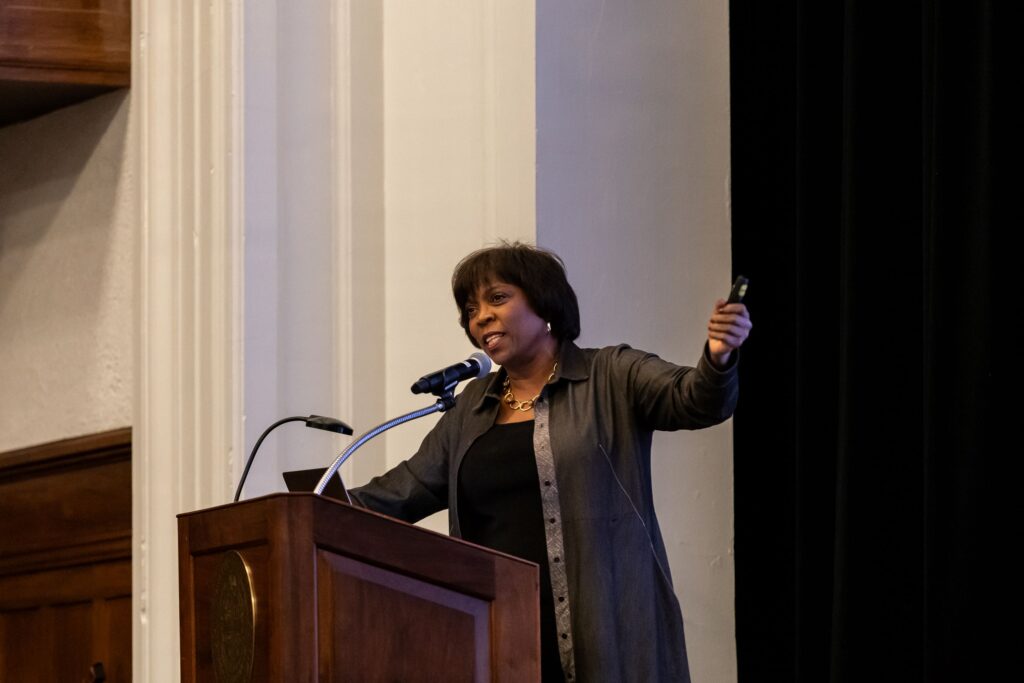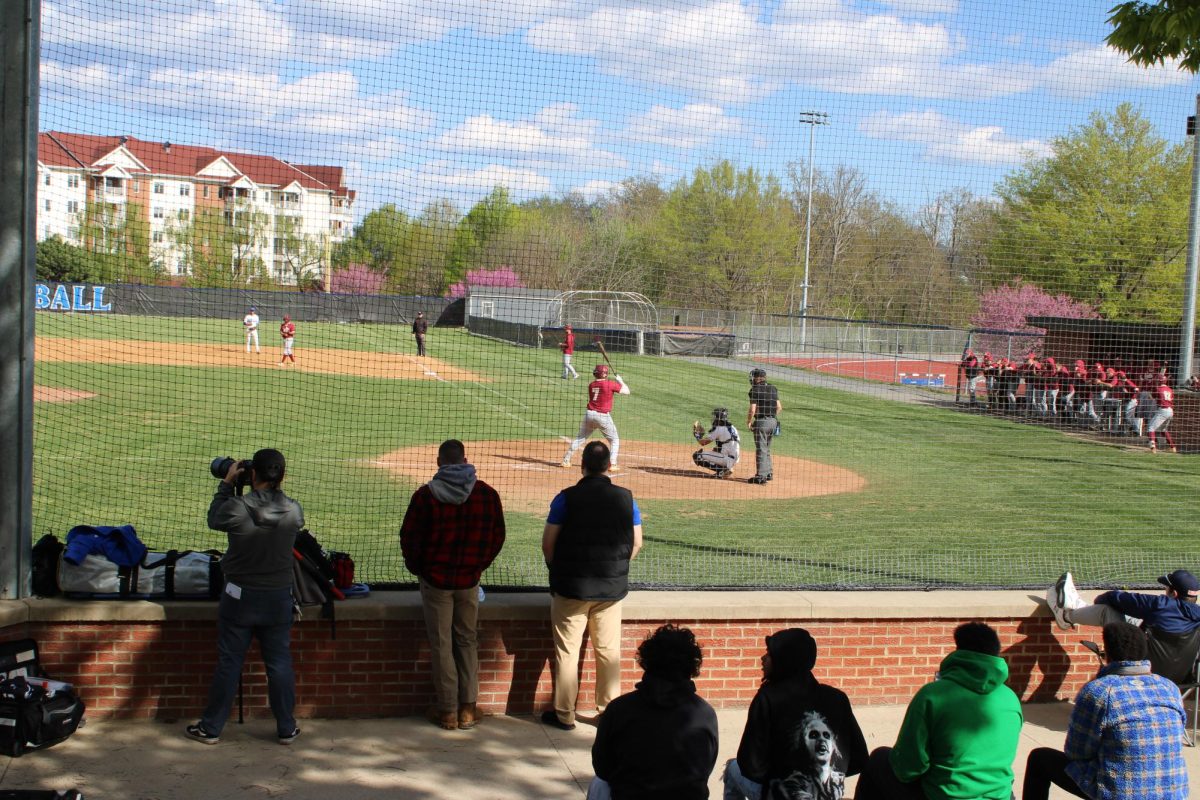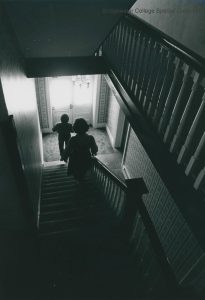Three Sexual Assaults Reported in Less Than Two Weeks
Rise in Reports Attributed to More Student Awareness
October 28, 2015
Three reported sexual assaults in less than two weeks raises the question of whether there is an increase of sexual violence on campus or if there is more awareness of what sexual assault is and how to report it.
On Sept. 24, 2015, Bridgewater College students, faculty, and staff received the first of three timely warning emails in the span of 11 days. The first timely warning email from BC Chief of Police Nicholas Picerno states, “the Bridgewater College Campus Police Department received information from the Bridgewater College Title IX Coordinator about a sexual assault reported to have occurred on Sept. 22, 2015, in a residence hall. The alleged perpetrator is not a BC student.”
On Sept. 30, a second timely warning email was distributed about a Sept. 27 sexual assault, with the alleged perpetrator identified as a BC student. On Oct. 5, a third timely warning email notified the community of an Oct. 3 sexual assault.
The alleged perpetrator in that incident was also a BC student. All three incidents took place in residence halls on campus.
“I don’t ever recall us sending out three timely warnings within a shorter period of time,” said Executive Vice President of Bridgewater College Roy Ferguson in a recent interview.
While the college has compiled an annual report on campus crimes for many years in accordance with federal law, that law was amended to encourage more timely warnings in late 2014, when Congress passed the Violence Against Women Reauthorization Act.
“All the research shows that…sexual assault is under-reported nationwide,” Ferguson said. “While we would rather not have any crimes on campus, we are encouraged that students who in the past may have been reluctant to come forward… are feeling supported in coming forward to assert a claim that they were assaulted,” he added.
In the 2012-2013 school year, there was one forcible sex offense reported. That number increased in the 2013-2014 school year to five forcible sex offenses reported; in the 2014-2015 school year three forcible sex offenses were reported according to the 2015 annual security report.
Crystal Lynn, Bridgewater College Title IX Coordinator, believes people who feel they have been sexually assaulted seeking her out means they feel comfortable speaking with her and are aware of the resources and rights that they have.
“What we know is that sexual assaults are happening on every college campus and so I think what it tells us is that students are comfortable reporting here,” said Lynn. “I’ve heard from other peer institutions that are having comparable if not more reporting [of sexual assault] and I feel like that speaks to us helping students to understand they have the right to report and where to report,” continued Lynn.
Bridgewater College is not exempt from nationwide trends, as President David Bushman said in an Oct. 9 email to the community. “Authorities agree that the uptick in reporting of incidents of sexual assault is actually a reflection of a more informed and educated student body,” wrote Bushman.
“The incidents that resulted in the Timely Warnings are being investigated in a fair, equitable and impartial manner, and if wrongdoing is determined on the part of any member of our community, we will respond appropriately,” wrote Bushman. “I will not stand for any member of our community being victimized.”
The Clery Act and crime disclosures
Each of the timely warning emails contained the statement, “This information is being released in accordance with the federal Jeanne Clery Disclosure of Campus Security Policy and Campus Crime Statistics Act.”
The Jeanne Clery Act, named for a 19-year-old woman who in 1986 was raped and murdered in her dorm room at Lehigh University, first took effect in 1991. The law requires colleges and universities to inform their communities about violent crimes on campus and to provide survivors of sexual assault, domestic violence, dating violence and stalking with immediate options to improve their safety and offer assistance in reporting such crimes to local law enforcement if they wish.
Ferguson explained there are four main factors that influence whether a timely warning is sent the campus community. First, a Clery crime needs to take place. Second, it needs to be reported to a Campus Safety Authority. Third, it has to be within the campus’ Clery geography. “The last thing it ‘does the alleged crime constitute a threat to students and/or faculty?,’” said Ferguson.
Some examples of Clery crimes as stated by the law are criminal homicide, murder, manslaughter, rape, fondling, incest, statutory rape, robbery, aggravated assault, burglary, motor vehicle theft and arson. The list continues with arrests for liquor law violations, drug law violations and illegal weapons possession, hate crimes, larceny, theft, simple assault, intimidation, destruction/ damage/vandalism of property and dating violence, domestic violence and stalking.
People who are considered to be Campus Safety Authorities on Bridgewater’s campus are members of the campus police, the Executive Vice President, the Dean of Academic Affairs, the Dean of Students, the Title IX Coordinator, a list of people from Residence Life including Resident Advisors, the college nurse, faculty advisors for clubs, athletic team coaches and assistant coaches, as well as athletic trainers. The entire list can be found within the college’s annual safety and security report.
“Clery geography” is defined as, “Buildings and property that are part of the institution’s campus; the institution’s non-campus buildings and property; and public property within or immediately adjacent to and accessible from the campus … areas within the patrol jurisdiction of the campus police or the campus security department,” as stated by the federal regulations.
Whether an alleged crime constitutes a threat to students is determined by a group of Campus Safety Authority officials at the college. This typically includes Picerno or a sworn officer, Lynn or a Deputy Title IX Coordinator and Ferguson
In the case of sexual assaults, if it is determined that a timely warning email needs to be sent, every effort is made to have the email reviewed by the alleged victim before distribution. This allows the individual to be aware an email is being sent and to make sure they find its wording acceptable.
“We think it’s important that the victim not feel revictimized by the sending of the timely warning,” said Ferguson.
BC’s sexual assault prevention measures
Regarding sexual assaults on campus, Bridgewater administration wants students to be aware of how to report a sexual assault if such an event occurs. As seen in emails, on posters around campus and from other materials sexual assaults can be reported either directly to the college’s Title IX Coordinator, Crystal Lynn, to campus police, or the Bridgewater Town Police. After an assault has been reported, the Title IX Coordinator speaks with the student about their resources, counseling services, medical services, what the process is like on campus and criminally and other forms of support. The Title IX Coordinator will then decide if the claim should go to the next level which is done on a case-bycase basis.
In addition to responding to these sexual assaults by investigating the cases and responding with appropriate support for the victim, part of the response on campus is increasing prevention efforts.
In his email to the campus community President Bushman wrote, “We know the best prevention we have is one another. If you see a situation that has the potential to escalate, please intervene. If you do not feel comfortable intervening, get assistance from someone else: residence life staff or campus police.”
Because campus authorities are not in residence halls at night or during the weekend when students are interacting with one another, “the best prevention is bystanders,” explains Lynn. “What stops sexual assault are other students stepping up if they see something that doesn’t seem right…If I would want students to hear one thing that would be it. Really students hold the power to stop sexual assault just by the way they are acting with one another in lots of settings,” said Lynn.
Other campus prevention efforts include campaigns like the Red Flag Campaign, Title IX and Deputy Title IX coordinators professional development, engaging students in conversations about how to best communicate with the community about prevention and having freshman participate in the Every Choice Module before coming to campus. Every Choice is an interactive online program focused on violence prevention by teaching students who are bystanders how to intervene.
The college is currently seeking a new Title IX Coordinator, which will free Lynn to focus more on prevention efforts. She will continue to serve as a Deputy Title IX Coordinator. While Lynn’s current position is a 10-month position, the college is advertising for a 12-month employee to design “strategic initiatives aimed at preventing sexual violence, encouraging bystander intervention, and reinforcing the College’s commitment to fostering a safe and healthy environment for all students and employees,” according to the job description. For Lynn, “The number one thing [part of the job] is just the ability to talk and build rapport with students and be a helpful resource for students.”
While the college is emphasizing response and prevention of sexual assault this year, current efforts to keep the community come after last year’s lawsuit filed against the college in December 2014 by former student, Federica Facchetti. The college and administrators were sued for failure to provide a safe campus and educational environment free from discrimination. Facchetti claims she was unaware that in 2013 there were at least five reported forcible sex offenses that occurred at on-campus student housing facilities. On Feb. 5, 2014, Facchetti alleges she was sexually assaulted at an on campus student housing facility and she also claims that the reporting of that assault was mishandled. The case has not yet been resolved.





















































